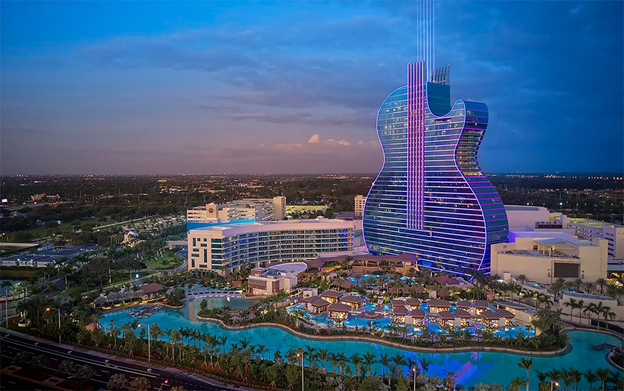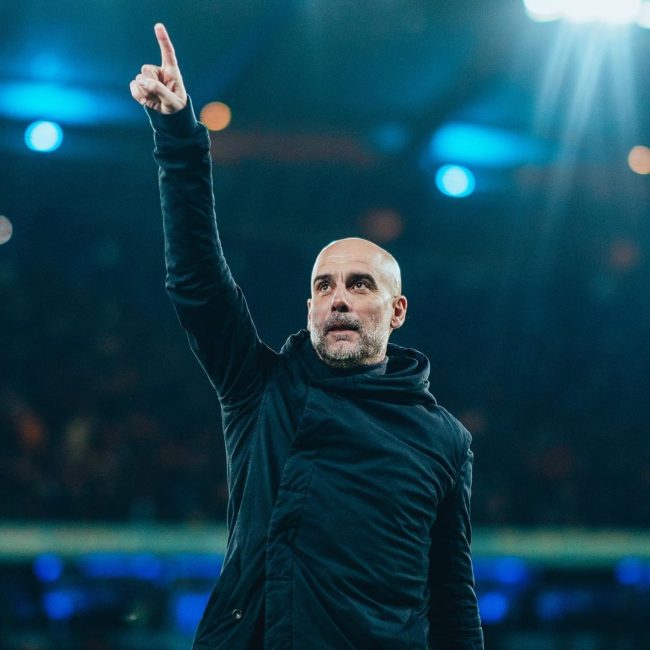Brazil’s gambling landscape has shifted dramatically from a thriving casino culture before 1941 to a complete ban under The Criminal Contravention Act of 1941.
Over the years, only a state-owned lottery and some forms of non-commercial gambling were allowed.
Now, the pressure to legalize gambling finally led to the approval of Bill 14.790 in December 2023, and the PL 2.234/2022 in July 2024, which aims to legalize land-based casinos and bingo houses.
The ongoing legalization process is unveiling Brazil’s vast investment potential, especially in the iGaming and casino sectors.
Among the prominent players showing interest is the iconic Hard Rock Hotel chain, known worldwide for its entertainment and hospitality.
Hard Rock’s focus on Brazil highlights the country’s growing importance as a prime market for international gaming operators.
Hard Rock International is closely monitoring the progress of legislation that could legalize physical casinos and bingo halls in Brazil.
With a significant investment of $1.35 billion already in place, Hard Rock is not just watching but actively positioning itself to take advantage of the potential market.
This investment includes the development of luxury hotels and resorts in strategic tourist destinations across Brazil, such as São Paulo, Fortaleza, and Foz do Iguaçu.
Currently, Hard Rock operates four Café locations in Brazil, and the company’s plans to expand into hotels and potentially casinos are driven by the untapped potential in the Brazilian market.
The legalization of casinos could transform these resorts into comprehensive entertainment hubs, aligning with Hard Rock’s global strategy of integrating gaming into its hospitality offerings.
The potential legalization of casinos in Brazil presents economic advantages and opens a substantial market for operators like Hard Rock, appealing to over 200 million residents already participating in online gaming.
Read Also: Colombia 2024: Germany Deserved To Beat Falconets — Peter
The Federation of Hotels, Restaurants, and Bars of the State of São Paulo (Fhoresp) estimates that the sector could attract investments exceeding $76 billion, positioning Brazil as the third-largest gaming market globally, following the United States and Macau.
Brazil’s iGaming market is experiencing rapid growth, with projections indicating a revenue increase of 24.1% in 2024, reaching nearly $2 billion.
By 2028, this figure could soar to $3.63 billion, driven by a compound annual growth rate (CAGR) of 16.51%.
Online casinos, newly legalized, are expected to contribute significantly, generating $1.11 billion in 2024 alone.
The overall iGaming market in Brazil, including sports betting and lotteries, is likely to become one of the largest in the world.
With an estimated market value of approximately $8.95 billion (R$ 50 billion), the potential for growth is immense.
The country is already the third in the number of players and professional players, behind only the U.S. and China.
This is further supported by Brazil’s deep-rooted cultural affinity for gaming and the increasing internet penetration in major urban centers.
The preferential purchase period for Brazil’s online betting licenses, which ended on August 20, saw 102 companies acquire licenses at approximately $5.37 million (R$ 30 million) each.
These licenses enable sports betting, online slots, and live casino streaming, and each permits managing up to three companies, potentially introducing over 300 companies to the market.
The Ministry of Finance could collect at least $547.59 million (R$ 3.06 billion) from this first licensing phase, which shows great prospects for development and revenue generation.
Major operators such as Hard Rock and MGM, targeting the Brazilian market, will encounter stiff competition from local entities like KTO, an online casino already established in Brazil.
KTO’s founder, Andreas Bardun, believes that all competitors should aim for at least a 10% market share in the long term, with ambitions for his company to lead the market.
This competition is expected to spur a broadening of services and a fierce contest for market dominance in Brazil.
The regulatory environment in Brazil is still evolving, and international operators will need to navigate a complex legal landscape to secure licenses and establish their operations.
Despite challenges, Brazil’s young, tech-savvy population increasingly embraces online and mobile gaming, offering significant potential for the iGaming industry.
As the legalization process continues to unfold, Brazil can become one of the most dynamic gaming markets in the world, making it an attractive destination for global operators.
Brazil, casinos, gambling, hotels and resorts.
Suggestions for tags.






